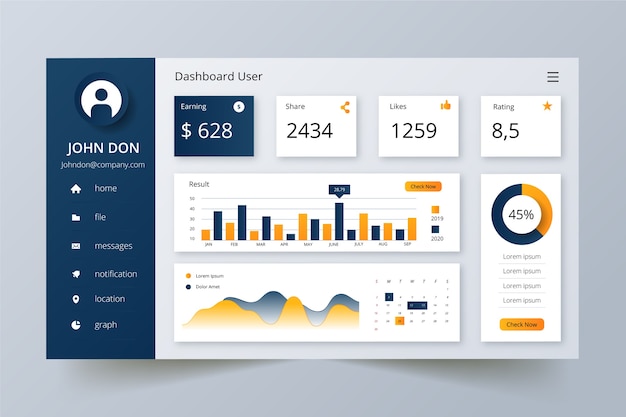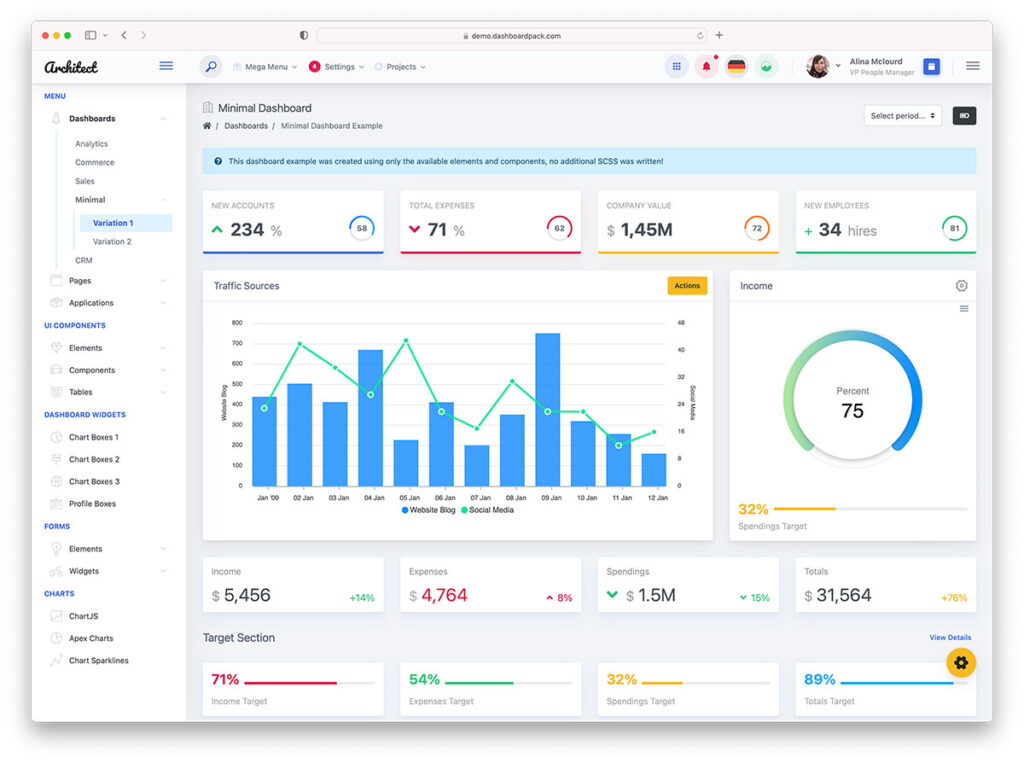
Web Portals & Dashboards Custom Solution for your Business Needs
Web portals and dashboards are essential tools for businesses to access, analyze, and interact with data efficiently. By offering customized solutions tailored to specific business needs, these platforms provide valuable insights and streamline operations. Here’s a deeper dive into web portal and dashboard custom solutions for businesses:
What is a Web Portal?
A web portal is an online platform that aggregates information from various sources, such as databases, applications, and web services, and presents it in a user-friendly manner. It serves as a centralized access point for employees, customers, or partners to interact with the business’s data, systems, and content.
What is a Dashboard?
A dashboard is an interface that displays real-time data in a visually engaging way, allowing users to monitor key metrics and KPIs (Key Performance Indicators). Dashboards present data from different sources in graphs, charts, and tables, offering insights into performance trends, business operations, and decision-making processes.
Use Cases
Businesses can provide customers with a personalized portal to access orders, track deliveries, manage subscriptions, and submit support tickets.
HR and team management portals with dashboards showing performance metrics, employee goals, attendance, and other key data.
Sales teams can access real-time sales data, lead conversions, and performance reports to manage campaigns effectively and make quick adjustments.
Integrating supply chain data from multiple systems into a dashboard allows managers to track inventory levels, shipping statuses, and supplier performance in real time.
Healthcare portals for patients and providers, offering access to health records, appointment scheduling, and data analytics on patient outcomes.

Benefits of Custom web portals and dashboard
Custom dashboards provide executives and teams with critical information at their fingertips, enabling better-informed decision-making.
Centralizing access to data and systems in a portal can reduce manual work and streamline workflows, improving overall efficiency.
Each user can have a personalized dashboard experience, with information relevant to their role, location, and business needs.
Expand API offerings as your customer base grows, without worrying about infrastructure limitations.
Implementation Steps
Assessment
Evaluate your current business intelligence needs and identify key performance indicators (KPIs).
Deployment
integrate the solution on all required devices.
Training
Conduct training sessions for team members to familiarize them with the application and its features.
